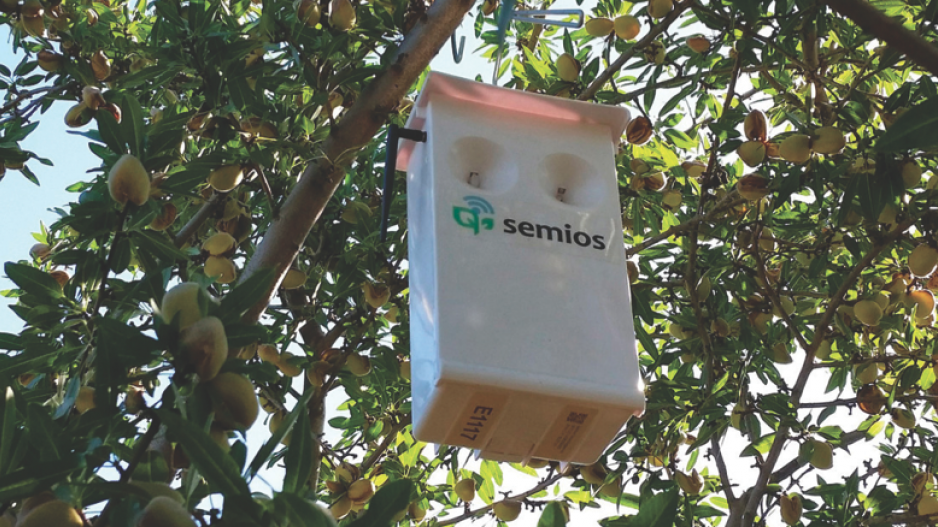If Michael Gilbert has one regret about the early stages of his company it might be having “eyes bigger than my stomach.”
Gilbert’s Semios Technologies develops wireless network technology for farms and orchards that help create stronger yields by fighting pests and monitoring for diseases and frost.
In its third year, the Vancouver company distributed 40 of its systems across eight different European countries.
“We wanted the market, but maybe we should have just waited a few years,” said Gilbert, who earned a PhD in medicinal organic chemistry at the University of British Columbia before founding Semios seven years ago. “Instead, now we’ve gone after California, which for us represents $600 million a year.”
Last year, the California Department of Pesticide Regulation and the U.S. Environmental Protection Agency gave the green light to Semios’ aerosol pheromone biopesticide that targets navel orangeworm mating.
Those approvals have helped put the company on a path to deploying 150,000 of its Internet of Things-enabled sensors and cameras.
The devices detect and identify agricultural pests, and trigger the release of pheromones to confuse them and thwart their mating.
Preventing their spread this way avoids using pesticides that could be harmful to the environment.
Now Semios is poised to generate $7 million in revenue this year, Gilbert said. That’s more than double the amount from two years ago.
The company sells its hardware devices to farms and orchards, but it also generates revenue from selling the software services necessary to detect pests and bad weather.
“We’re pretty enthusiastic and optimistic about their future growth,” said Ian Hand, executive director of Simon Fraser University’s Innovation Office and VentureLabs.
The VentureLabs accelerator took on the company as a client about five years ago when it was still in its earliest stages, offering the startup mentorship and networking services.
Hand said Semios’ revenue is a good indicator of what’s to come as more traditional industries like agriculture begin applying technology in ways they have never used it before.
“Agriculture is a unique market in some ways because the success of crop yield, crop delivery, is often dependent on information,” he said. “So the ability to obtain information remotely, [in] real time, very localized, can help growers achieve maximum yield in an industry that is often subject to vagaries like weather, pests and so on.”
The accelerator’s mentorship and support network for startups such as Semios includes a mix of local universities and institutions such as Ryerson University.
It’s also developing incubation networks in China and India as “soft landing” zones for Canadian startups looking to break into those markets, Hand said.
He anticipates Semios will soon make its way into the large Chinese market.
But for now, Gilbert said, he’s staying focused on California.
“You kind of put a lot of irons in the fire and when one gets hot, then you have to stick to it.” •




